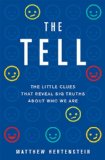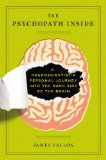new book – ‘Top Brain, Bottom Brain: Surprising Insights into How You Think’ by Stephen Kosslyn and G. Wayne Miller
November 5, 2013
Top Brain, Bottom Brain: Surprising Insights into How You Think by Stephen Kosslyn and G. Wayne Miller (Simon and Schuster, 2013)
Book description from the publisher:
IN THIS GROUNDBREAKING contribution to the literature on human personality, a celebrated psychologist and an award-winning author offer a novel way to learn about how each of us thinks. For the past fifty years, popular culture has led us to believe in the left brain vs. right brain theory of personality types. It would be an illuminating theory if it did not have one major drawback: It is simply not supported by science. In contrast, the Top Brain, Bottom Brain theory is based on solid research that has stayed within the confines of labs all over the world—until now.
With cowriter G. Wayne Miller, Stephen M. Kosslyn, PhD, a leader in the field of cognitive neuroscience, explains this exciting new theory for the first time. Kosslyn and Miller describe how the top and bottom parts of the brain work together, summarizing extensive research with ease and accessibility. In doing so, they introduce us to four modes of thought: Mover, Perceiver, Stimulator, and Adaptor.
These ways of thinking and behaving shape your personality, and with the scientifically developed test provided in the book, you’ll quickly be able to determine which mode best defines your dominant way of thinking. Once you’ve identified your dominant cognitive mode, you can reflect on the many possible practical applications from the way you conduct business to your relationships to your voyage of personal discovery.
Google Books preview:
See also: Book website







